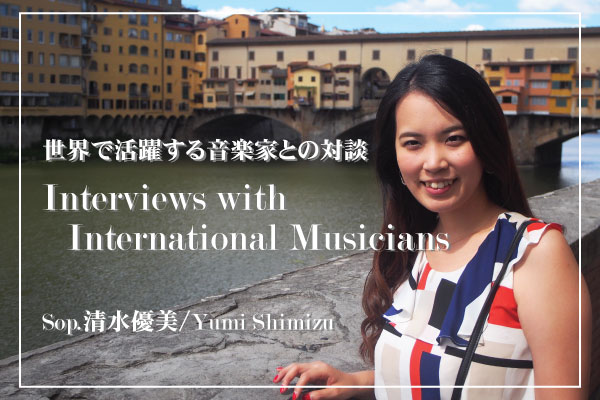
Luca Gorla is a pianist and a vocal coach. Born in Milan, he has studied at the Verona Conservatory and has then graduated in Modern Literature at Milan’s University. After winning Stresa’s international music prize in 1981, he started an intense concert and teaching career, working with renowned artists such as Mariella Devia, Mirella Freni, Luciana Serra and Renata Tebaldi. He specialised in “bel canto” repertoire with Rodolfo Celletti, of whom he has been assistant for years, and Alberto Zedda. He has worked for many Italian theatres and festivals, including Opera di Roma, Teatro Regio di Torino, Festival Rossini in Pesaro, Festival of Martina Franca and also abroad, including in Tokyo. Married to Japanese soprano Yukiko Aragaki, he currently teaches in many vocal, interpretation and piano accompaniment courses and has worked as a musicologist and music critic for radio stations and magazines. He also took care of editing some important recordings for Deutsche Grammophon. We meet the Maestro at his Milan home.
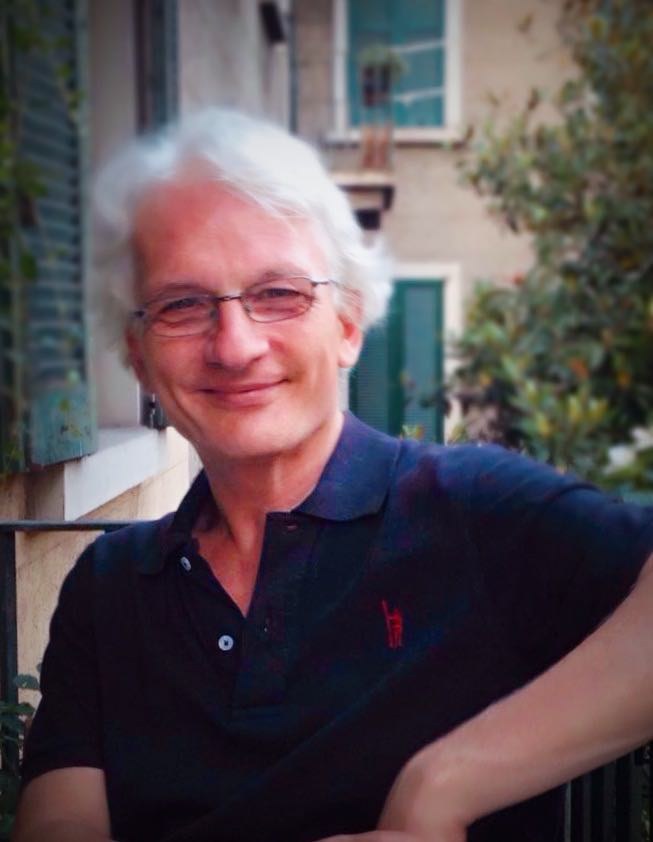
-Many thanks for the interview. I’d like to start from this question: how did you fall in love with music and opera?
I’ve always liked music, since childhood. In my family we had an uncle singer. This was an important element because as he was starting his career, I had the occasion to hear him singing.
-Of course.
And I was instantly attracted to voice, to opera, in particular during the grand finale of an opera contest here in Milan, at the Scala, hearing a Don Pasquale, it was an inspiration. That’s how my love for opera singing and classical music started.
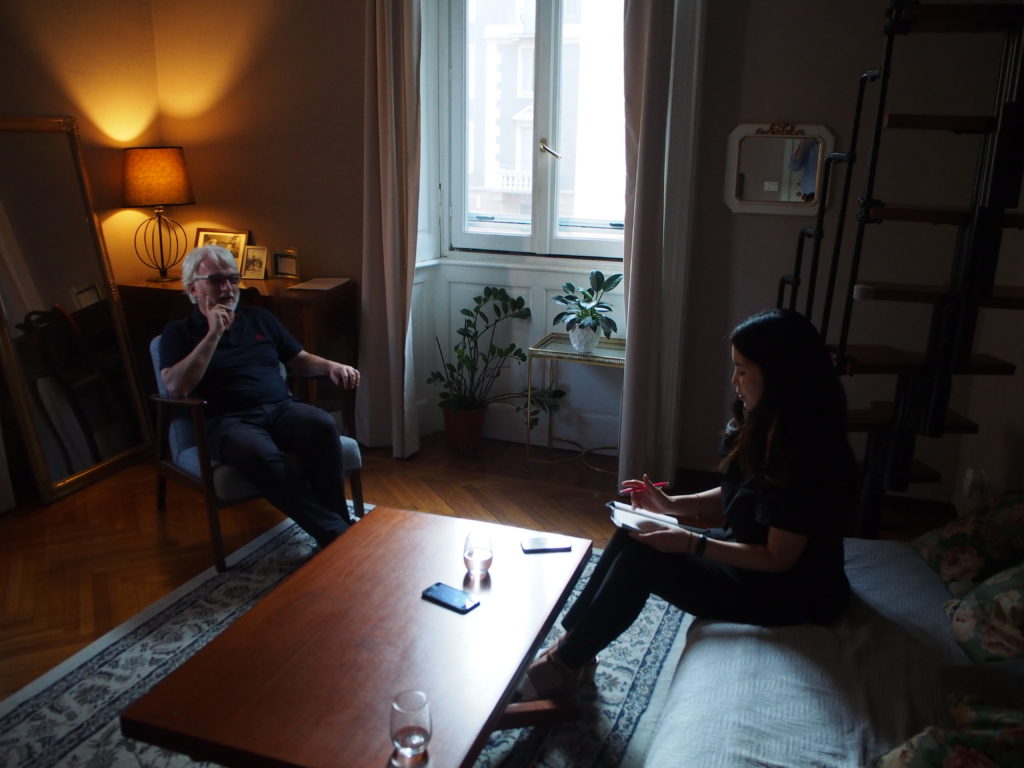
-So your love for classical music started with opera?
Somehow yes and from there the interest broadened itself. Soon after I wanted to start learning the piano, which coincided with my father’s relocation to Verona. I started to study piano at the Conservatory and from there to play the opera repertoire, which was unusual at the time. At Christmas, that year, they gave me the score of “Il Barbiere di Siviglia” and the records of this opera, so in addition to playing Czerny, Bach, Beethoven and Mozart, I tried hard to play and sing opera. From there everything started, so my approach to opera was in parallel with the studying of the piano.
-In Japan we don’t have this idea of starting so soon (as a child) at the Conservatory. So you started very early?
From what I know of Japan, as for family reasons of course I learned more, I understood that children start very early with instruments, whereas I started later as I was already 8 or 10 years old. I never studied before, I had a little piano and played it by ear and it looked like it was easy for me, so I entered the Conservatory at 10 years old, a late age compared to Japan and other countries. At the time, however, you could not start so early at the Conservatory, only at 9 or 10, I started at that age but others maybe had already studied privately. When I entered the Conservatory, they had me performing an aptitude test, like playing something, recognise music, singing… and so on. As I mentioned, my love for music had already started however and I had my first occasions of attending opera events, in Verona and Venice. We then moved to Milano, where there were more such opportunities.
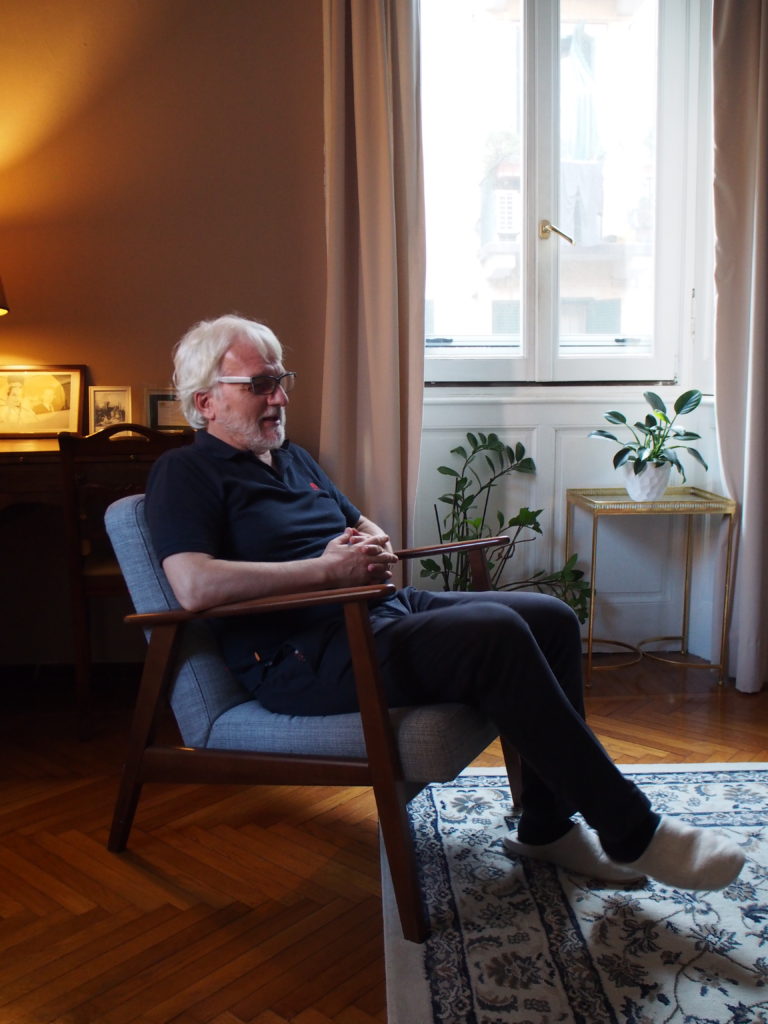
-So was it a natural thing to become a vocal coach?
Well, I had an advantage as now I was teaching to pianists. The question is always “how do you do it, what do you need to do” etc. These questions are asked to me by students who are 23-26 and have never accompanied singers or listened to opera or played much.
If I think about my experience, which may be a little different from the one of the others, I had the advantage of starting immediately to play opera repertoire and read scores and going to the theatre. It was not instantly clear to me what I wanted to do, I just knew I loved opera so much and then I understood that I could do both, meaning if not becoming a pianist, working with the opera. It was a personal path that I chose much in advance.
I was also very lucky in having a great teacher in Bianca Coen and I owe her very much. She had a great talent in understanding the possible future of a student. She saw my love for opera, the easiness with which I read scores, my approach to music and encouraged me to follow that direction. She did the same thing with other students who ended up doing very different things, like percussions, because she saw that they had a particular aptitude to rhythmics.
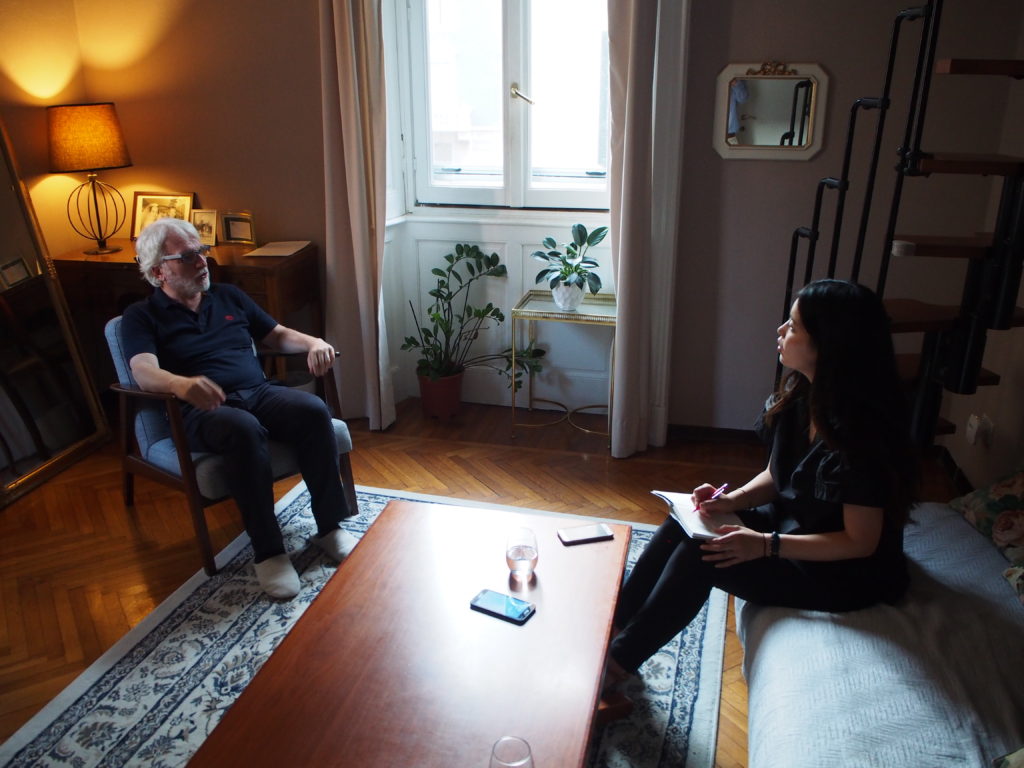
-Indeed, this ability to encourage is very important in teachers.
Yes, it is important that someone understands. When I was young, I wanted to become a musicologist and I was also encouraged to do so.
-Can someone really dream of becoming a musicologist as a child?!
Yes, in the end I was lucky not to become one as I would have been unhappy, but at the time I was really committed to it. When I had to choose what to study though I could go for Musicology but it only existed in Cremona or apply to a faculty that really interested me at university. As my passion for literature etc. had already come out, I chose to do Modern Literature. So the musicologist thing had already ended there, because I understood that I liked to study but also to play and I didn’t just want to become a musicologist.
-Very interesting. It was an important moment to choose your future career and life.
Yes, it was all precious education but then you need to understand what you want to do. As I said, I already started going regularly to theatre in order to listen and see opera, understand it by myself; then I also liked to play the piano, it was easy for me to read scores and this is was an additional element. All these things combined, plus the teachers I had and encounters with friends, originated the turning point in my career, which however did not exclude also the possibility to study history of music.
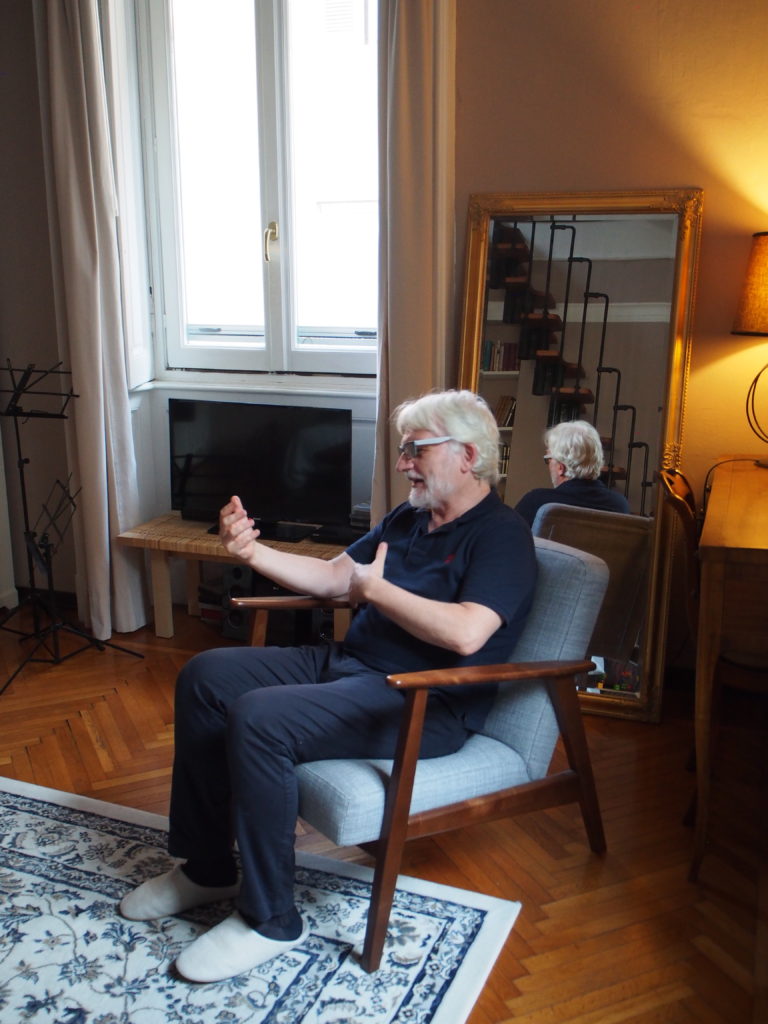
-So after university, when you understood that you liked to play the piano, you started your career?
Yes. I know it’s different in Japan because you have music universities. Here, now, Conservatories have become more like university, whereas until a few years ago it was just the place where musicians studied. When you finished your studies at conservatories, you got a diploma and not a degree and there in theory musicians could already start their career.
I went to university because I wanted to, in order to study Italian literature, so when I was studying at the university I had already started to work because I did not need to graduate to be a musician. I brought along the two things in parallel, with a certain tranquility also, because I did not need to graduate immediately. Today it’s different. Still, my thesis was on history of music.
So my career actually started after my liceo, when I was 18 years old, with the opportunity to work at concerts with singers and with festivals and theatres. There I worked as vocal coach and as a pianist. At the same time I continued to attend concerts, theatres and opera and I knew the people, singers, musicians, directors…
-So the more you do, the more opportunities arise…
Yes, correct. Many people have been so important in my life, I’ve been lucky to have had teachers that are not just the great pianist, the great teachers, but also people who had contacts with music personalities, history of performance etc., all very important things.
Also, years later, another important encounter was with Rodolfo Celletti, a famous music critic whom I met at the theatre. I was familiar with what he wrote in the papers and I was always impressed about how he wrote about singing and history in such a different way from all others.
So I wrote to him, I met him and he was also instrumental in an important change in my life. He wrote so many books which influenced the public and other journalists. He had very clear ideas, sometimes very strict, too. His way of approaching and judge opera and of studying and promoting the “bel canto”, especially the one from the 18th and 19th century, was great and I learned much from his method of going in-depth on the technical side and his approach in general.
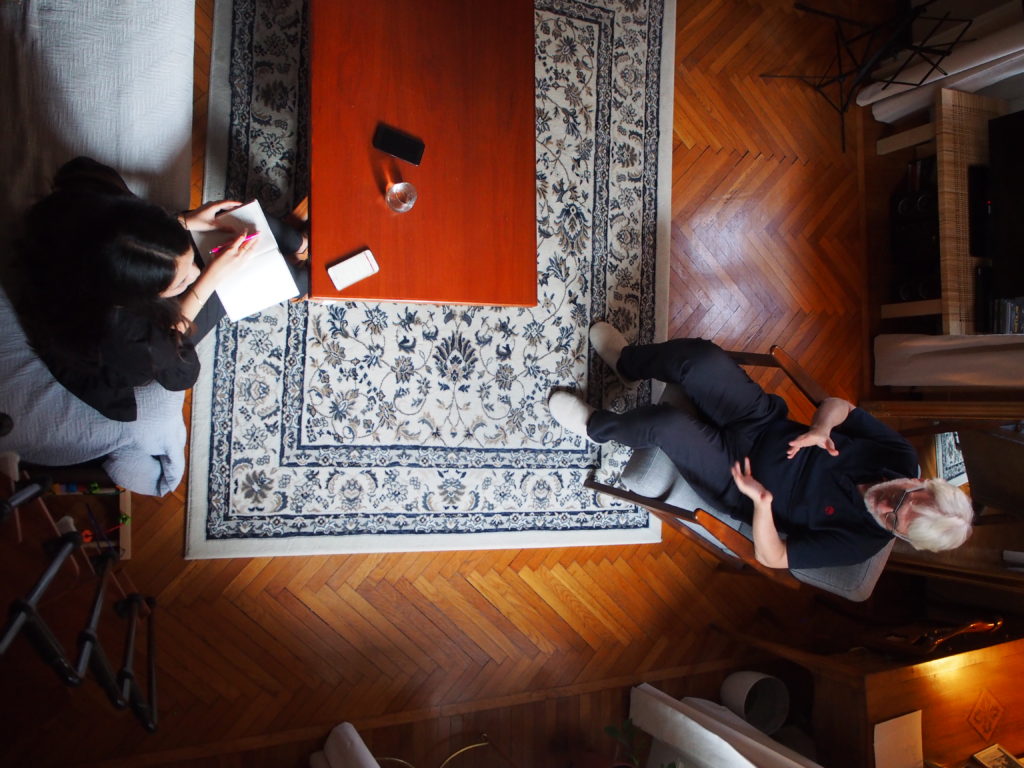
-So you worked as his assistant?
Yes, because this journalist then became almost a founder and then artistic director for many years at the Festival della Valle d’Itria a Martina Franca, in Puglia region, Italy. This festival has been founded by Paolo Grassi, who also founded the Piccolo Teatro in Milan. He wanted the festival for “bel canto” music, so he called Celletti as expert and then also maestro Alberto Zedda. Given the fact that I knew Celletti, I started working with him at the Festival as pianist and assistant. I then met maestro Zedda, who was a great expert as conductor of bel canto so they have been my mentors. I also continued to play and study and exercise with singers during concerts, thus becoming a vocal coach, working in theatres as pianist. I knew and liked all the repertoire and the history of interpretation, singers, records and their history, something Celletti also liked. He treated me as a son. Through all this it was also rather easy to get to work for the Accademia Rossiniana in Pesaro and then in Busseto as vocal coach, at the Accademia Verdiana and there I met other important people, like Carlo Bergonzi. He was a great singer and teacher, another person who gave me so much.
-When did you start to teach at the Conservatory, at the Civica school and others?
I started almost immediately to teach and to be pianist and vocal coach. The strange thing is that I started at a young age with very famous singers and privately, not in a structure. For example, Luciana Serra, Mirella Freni, Ruggero Raimondi etc. I was invited as teacher in many academias. I started in Pesaro, then Osimo and the Accademia Verdiana, all with many young singers. Then there were the courses that Celletti was doing here and there, including at the Civica, a week every month for one year. A few years after working as vocal coach at those courses with Celletti, the opportunity arose to work at the Civica school with a permanent contract. Until then I never thought about becoming a teacher, but when these cooperations became more stable, especially at the Civica which was in my city, I found myself very well at doing it.
Another example of opportunities which arose from other contacts, was working with some foreign singers at the Martina Franca festival, with whom a bond of trust and respect was born immediately; one of them, Nicolai Cok, came from the Netherlands and a few years later he established a festival similar to the one at Martina Franca, dedicated to Bel Canto, which did not exist at the time. So I became artistic director for this festival in Dordrecht, an ancient city like Martina Franca in Holland, for 15 years. The festival was named Bel canto festival Dordrecht. It was an opportunity to meet more young singers. And all of this started with Celletti, so it was kind of destiny. When he left the Martina Franca festival, I also did. Then the famous conductor Fabio Luisi, who is working in Tokyo as the conductor of the NHK orchestra but has worked with the Metropolitan and in Zurich and had also started in Martina Franca, accepted the offer to return there as music director. Despite his great career worldwide, he spends his summers in Martina Franca and in turn he asked me to return as well. We are sort of musical descendants of Celletti so I came back, too, three years ago.
Thanks for this wonderful story. Now let’s change topic, with a more ordinary question; as you know all operas, which is your favourite?
Well, some people say this would be a difficult question, but not for me: Boris Godunov by Mussorgsky. Not just because it’s superior, it’s because I was always fascinated by it ever since I was young and heard it at the theatre. If you asked me this question when I was a boy, I’d have said Rigoletto. Until I saw Boris at the theatre, I liked Rigoletto, the Barber of Seville, Verdi’s Otello. Then I saw Boris and it all changed. I also love the music, Russian music, but a language I am not familiar with. So it’s exotic somehow and that’s probably the reason: I love it but I could not teach it. I always saw it performed by great singers.
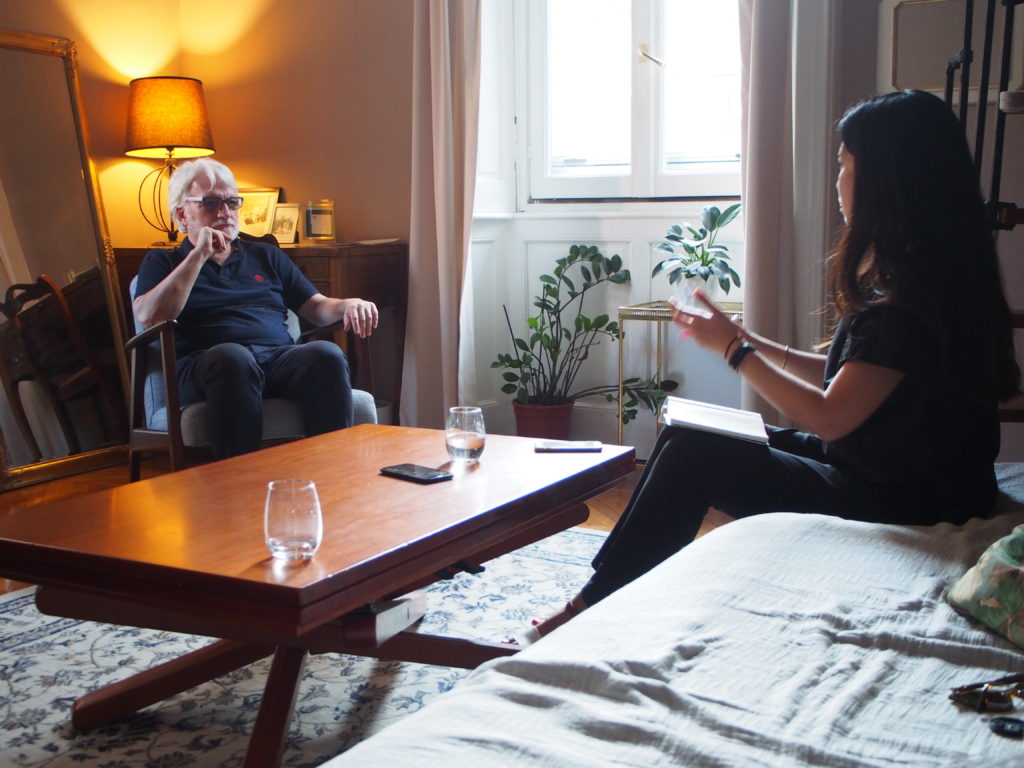
-By studying for my diploma with you, I was able to discover some wonderful pieces, some of which I did not know. Where does your energy come from?
Well as I started I tried to learn as much as possible and at the beginning it was famous pieces. Then my “musicologist moment” came and as I learned more repertoire, I found out I liked lesser known pieces. The same happens with literature and cinema. One always knows too little.
In Martina Franca many less known operas where performed, which also helped and for concerts one must search for interesting repertoires.
-Is it a joy to get to know new things?
It is and when you study the history of a given opera, sometimes you see that they became famous or lesser famous sometimes by chance of by bad luck. Some operas went bad because of a bad performance and then have been forgotten. Then of course there are masterpieces, but many less known operas are also very good and have been forgotten, the same happens with orchestral music. And there are also extraordinary singers that do not become famous.
-With the internet, nowadays, it’s very easy. Was it more difficult at the time?
Indeed, as such a vast repertoire is now available, you can discover so many things. In any case, I have always been curious, there was always a reason of curiosity from my side, to search for new things. Just think about baroque music for example, now many people are passioned by it, much more than in the past, but if you take Handel, he also wrote many operas and some of these are now known by the public. There are so many unknown operas with extraordinary arias. I was always curious, I never get tired of learning new beautiful things.
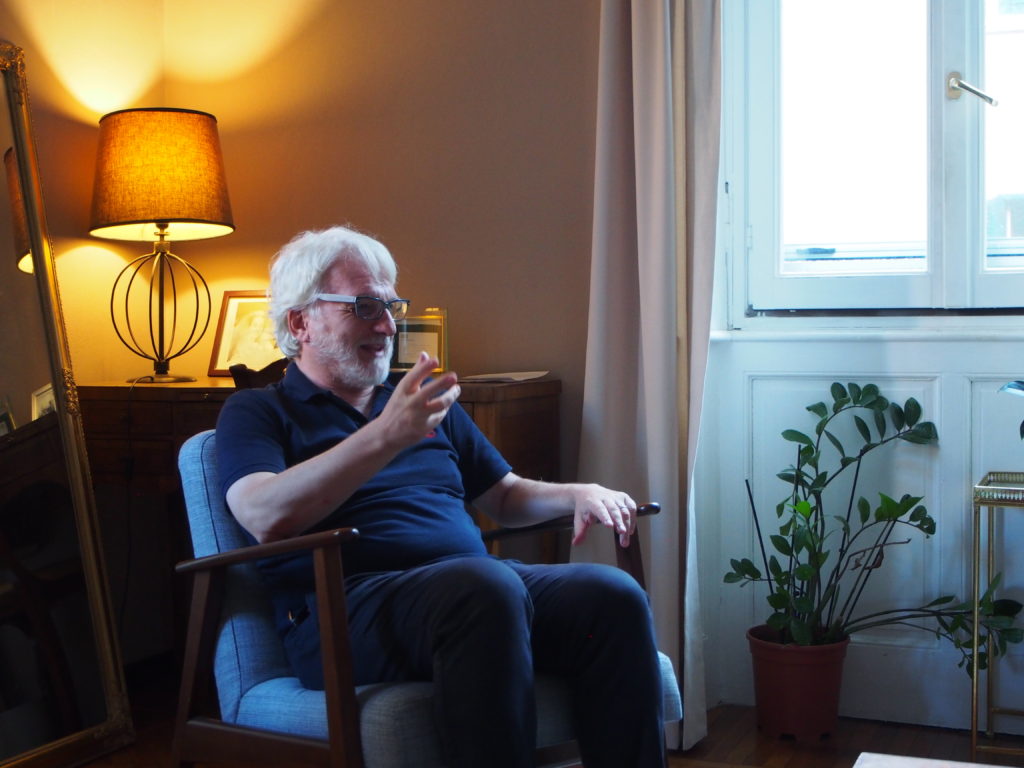
-Now, last question. Your projects for the future and some suggestions to Japanese students who, due to the pandemic, now can’t organise themselves as they’d like.
Well, my project for the future is having many ways of projecting new things and not just one. Apart from teaching, Martina Franca has now started again and there is much to do. I also hope to go back to Japan, I have many concerts and a masterclass there and I hope it won’t be cancelled. It’s in August/September at Toho Gakuen College and I hope to start again with my contacts and build courses and concerts and programs for new concerts.
Concerning the study in this period, of course, as you did, it takes much determination, skill and sacrifice. It’s is the way to do it if someone wants to study this repertoire and Italian opera. Even if you are great and skilled, you must come to the country where opera was born and the language is spoken. Although it is difficult, it is the right project.
Maybe it’s difficult for stay here for long now, but maybe one can think about shorter periods. The way we worked so far during lockdowns with online teaching is something we were not used to do and it’s absolutely not the way of doing it. I tried to develop a method for online teaching and some things work and some others don’t and somehow it can partly work and I wouldn’t have said the same thing a year ago. For people with whom I worked directly in person and that I know, one can work with this technology and it can bring to some results.
So, studying in presence is key and vital, because something will always be lacking if you don’t have a direct personal experience, but in this situation, after at least some work in presence, maybe technology can help.
-Thanks, it’s been very interesting!
Thanks to you!